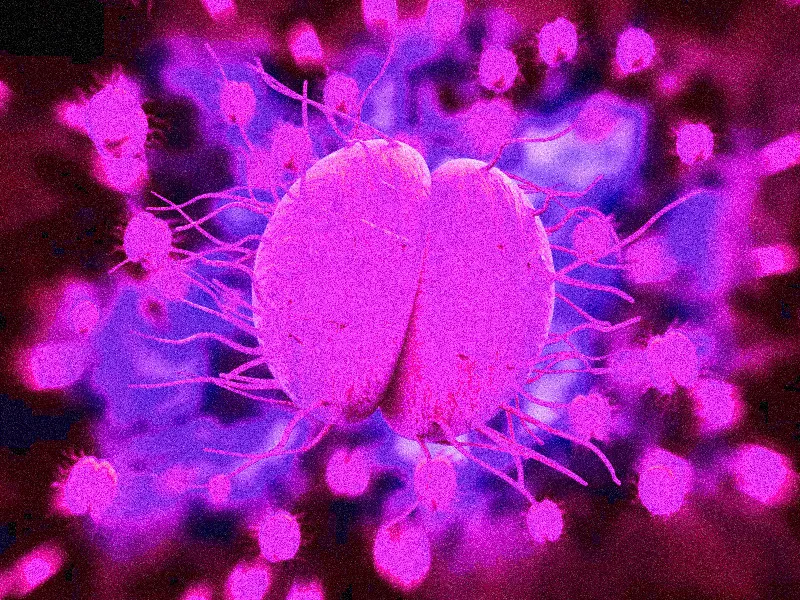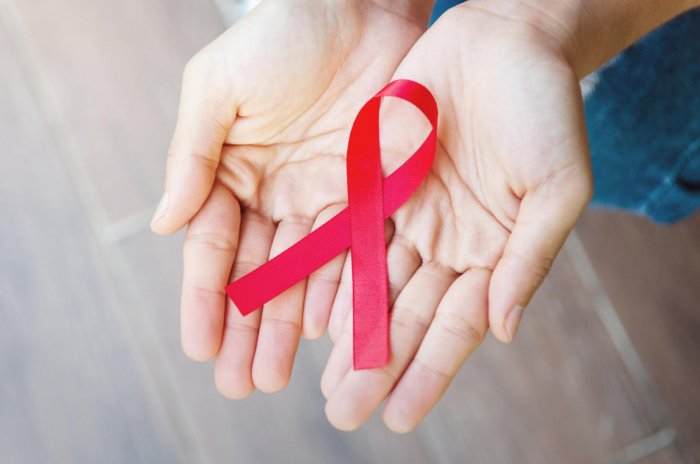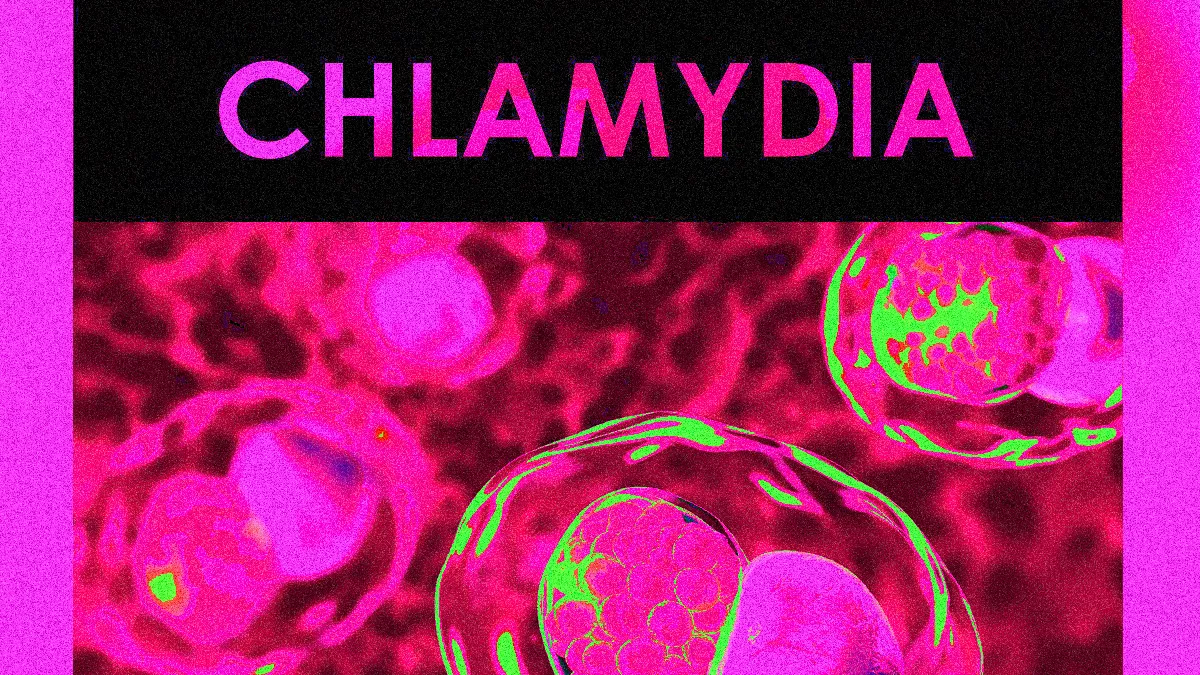GONORRHEA
12494
Untreated gonorrhea can cause serious and permanent health problems in both women and men.

Gonorrhea
What is gonorrhea?
Gonorrhea is a sexually transmitted disease (STD) caused by infection with the Neisseria gonorrhoeae bacterium. N. gonorrhoeae infects the mucous membranes of the reproductive tract, including the cervix, uterus, and fallopian tubes in women, and the urethra in women and men. N. gonorrhoeae can also infect the mucous membranes of the mouth, throat, eyes, and rectum.
Neisseria gonorrhea bacteria also can be found in the fluid discharges from the penis or vagina. It can be spread via unprotected sexual intercourse be it – vaginal sex, anal sex, or oral sex. Sex toys or vibrators that are not cleaned properly after use can be a source of spread as well.
How common is gonorrhea?
Gonorrhea is a very common infectious disease. CDC estimates that approximately 820,000 new gonorrheal infections occur in the United States each year and that less than half of these infections are detected and reported to CDC. CDC estimates that 570,000 of them were among young people 15-24 years of age. In 2014, 350,062 cases of gonorrhea were reported to CDC.2
How do people get gonorrhea?
Gonorrhea is transmitted through sexual contact with the penis, vagina, mouth, or anus of an infected partner. Ejaculation does not have to occur for gonorrhea to be transmitted or acquired. Gonorrhea can also be spread perinatally from mother to baby during childbirth.
People who have had gonorrhea and received treatment may be reinfected if they have sexual contact with a person infected with gonorrhea.
Who is at risk for gonorrhea?
Any sexually active person can be infected with gonorrhea. In the United States, the highest reported rates of infection are among sexually active teenagers, young adults, and African Americans.
What are the signs and symptoms of gonorrhea?
Many men with gonorrhea are asymptomatic. When present, signs and symptoms of urethral infection in men include dysuria or a white, yellow, or green urethral discharge that usually appears one to fourteen days after infection. In cases where urethral infection is complicated by epididymitis, men with gonorrhea may also complain of testicular or scrotal pain.
Most women with gonorrhea are asymptomatic. Even when a woman has symptoms, they are often so mild and nonspecific that they are mistaken for a bladder or vaginal infection. The initial symptoms and signs in women include dysuria, increased vaginal discharge, or vaginal bleeding between periods. Women with gonorrhea are at risk of developing serious complications from the infection, regardless of the presence or severity of symptoms.
Symptoms of rectal infection in both men and women may include discharge, anal itching, soreness, bleeding, or painful bowel movements. Rectal infection also may be asymptomatic. Pharyngeal infection may cause a sore throat but usually is asymptomatic.
The window period of Gonorrhea
Typical Window Period:
- Gonorrhea generally has a short window period, typically ranging from 1 to 14 days after exposure.
- Most individuals may begin to show symptoms within 2 to 7 days following exposure. However, some may remain asymptomatic (showing no symptoms) for a longer duration.
- Early symptoms of gonorrhea can include:
- Painful urination (dysuria)
- Increased vaginal or penile discharge
- Pain in the lower abdomen or pelvic area
- In women, symptoms may include abnormal vaginal bleeding or pain during intercourse.
- Prompt diagnosis and treatment of gonorrhea are crucial to prevent complications such as pelvic inflammatory disease (PID) in women and potential infertility in both men and women.
What are the complications of gonorrhea?
Untreated gonorrhea can cause serious and permanent health problems in both women and men.
In women, gonorrhea can spread into the uterus or fallopian tubes and cause pelvic inflammatory disease (PID). The symptoms may be quite mild or can be very severe and can include abdominal pain and fever. PID can lead to internal abscesses and chronic pelvic pain. PID can also damage the fallopian tubes enough to cause infertility or increase the risk of ectopic pregnancy.
In men, gonorrhea may be complicated by epididymitis. In rare cases, this may lead to infertility.
If left untreated, gonorrhea can also spread to the blood and cause disseminated gonococcal infection (DGI). DGI is usually characterized by arthritis, tenosynovitis, and/or dermatitis. This condition can be life-threatening.
What about gonorrhea and HIV?
Untreated gonorrhea can increase a person’s risk of acquiring or transmitting HIV, the virus that causes AIDS.
How does gonorrhea affect a pregnant woman and her baby?
If a pregnant woman has gonorrhea, she may give the infection to her baby as the baby passes through the birth canal during delivery. This can cause blindness, joint infection, or a life-threatening blood infection in the baby. Treatment of gonorrhea as soon as it is detected in pregnant women will reduce the risk of these complications. Pregnant women should consult a health care provider for appropriate examination, testing, and treatment, as necessary.
Who should be tested for gonorrhea?
Any sexually active person can be infected with gonorrhea. Anyone with genital symptoms such as discharge, burning during urination, unusual sores, or rash should stop having sex and see a health care provider immediately. Also, anyone with an oral, anal, or vaginal sex partner who has been recently diagnosed with an STD should see a healthcare provider for evaluation.
Some people should be tested (screened) for gonorrhea even if they do not have symptoms or know of a sex partner who has gonorrhea. Anyone sexually active should discuss his or her risk factors with a healthcare provider and ask whether he or she should be tested for gonorrhea or other STDs.
CDC recommends yearly gonorrhea screening for all sexually active women younger than 25 years, as well as older women with risk factors such as new or multiple sex partners, or a sex partner who has a sexually transmitted infection.
People who have gonorrhea should also be tested for other STDs.
PCR Multiplex DNA Test for 28 Infections 




Our STD PCR Multiplex test offers advanced technology to detect up to 28 infections, including Gonorrhea, Chlamydia, Syphilis, Herpes Simplex, Trichomonas, and Candida strains, all in one test. It can identify infections in various anatomical areas, such as the throat, urethra, anorectal region, vagina, cervix, sperm, and skin lesions. For urethral infections, the Urine PCR is recommended, while the Throat Swab PCR is ideal after oral sex. Anal Swab PCR is advised for unprotected anal sex, and the Vaginal Swab PCR is recommended for vaginal sex, with staff guidance available for all tests.
| PCR for 28 Infections (STD Multiplex) | Online results | |||
| Same day** | Next day | 3 days | 7 days | |
| Throat | 14,000 THB | 11,600 THB | 10,480 THB | 9,200 THB |
| Urine | 14,000 THB | 11,600 THB | 10,480 THB | 9,200 THB |
| Anal Swab | 14,000 THB | 11,600 THB | 10,480 THB | 9,200 THB |
| Vaginal Swab | 14,000 THB | 11,600 THB | 10,480 THB | 9,200 THB |
| Cervical Swab | 14,000 THB | 11,600 THB | 10,480 THB | 9,200 THB |
| Sperm | 14,800 THB | 12,640 THB | 11,600 THB | 10,080 THB |
| Skin Lesion Swab | 14,000 THB | 11,600 THB | 10,480 THB | 9,200 THB |
| Pooling | 15,600 THB | 13,280 THB | 12,400 THB | 10,800 THB |
| PCR for 2 Infections (Gonorrhea/Chlamydia) | Same day | Next day | 3 days | 7 days |
| Throat | 5,690 THB | 4,990 THB | 3,990 THB | 3,300 THB |
| Urine | 5,690 THB | 4,990 THB | 3,990 THB | 3,300 THB |
| Vaginal and Cervical Swab | 5,690 THB | 4,990 THB | 3,990 THB | 3,300 THB |
| Rectal Swab | 5,690 THB | 4,990 THB | 3,990 THB | 3,300 THB |
| Sperm* | 6,200 THB | 5,150 THB | 4,100 THB | 3,690 THB |
| Skin lesion Swab | 5,690 THB | 4,990 THB | 3,990 THB | 3,300 THB |
Contact us at info.bkk@pulse-clinic.com or chat on your preferred platform:
![]() +66 65 237 1936
+66 65 237 1936  @PULSEClinic
@PULSEClinic ![]() PulseClinic
PulseClinic
All PULSE Clinics in Thailand provide the most comprehensive PCR Tests for 28 infections
How is gonorrhea diagnosed?
PCR test is the best test to detect the DNA, and materials of gonorrhea. Urogenital gonorrhea can be diagnosed by testing urine, urethral swab (for men), endocervical or vaginal swab (for women), throat swab (for men and women), and anal swab (for men and women) specimens using nucleic acid amplification testing (NAAT). It can also be diagnosed using gonorrhea culture, which requires endocervical or urethral swab specimens.
If a person has had oral and/or anal sex, pharyngeal and/or rectal swab specimens should be collected either for culture or for NAAT (if the local laboratory has validated the use of NAAT for extra-genital specimens).
What is the treatment for gonorrhea?
Gonorrhea can be cured with the right treatment. CDC now recommends dual therapy (i.e. using two drugs) for the treatment of gonorrhea. It is important to take all of the medication prescribed to cure gonorrhea. Medication for gonorrhea should not be shared with anyone. Although medication will stop the infection, it will not repair any permanent damage done by the disease. Antimicrobial resistance in gonorrhea is of increasing concern, and successful treatment of gonorrhea is becoming more difficult. If a person’s symptoms continue for more than a few days after receiving treatment, he or she should return to a health care provider to be reevaluated.
After the treatment?
A person can spread gonorrhea to others from the time they become infected (by having unprotected sex with an infected partner) until they are treated.
A person can spread gonorrhea to others even if they do not have symptoms. If you are taking medicine, do not have sex for 7 days after your treatment is over. You should avoid having further sexual contact until both you and your partner have been treated properly. You can treat gonorrhea using prescription antibiotics, usually given in both tablet and injection form. After treatment, you should see your symptoms start to improve. Symptoms should start improving in 24-48 hours. Symptoms normally clear within a week of treatment, if you are still experiencing symptoms then you should consult the clinic where you received treatment for further advice. It is also good to follow up treatment with a ‘test of cure’ to check that you are now clear of any STIs, this can be organized through our website or via the clinic. This follow-up test is normally done 4 weeks after the treatment to see if the infection has cleared.
What about partners?
If a person has been diagnosed and treated for gonorrhea, he or she should tell all recent anal, vaginal, or oral sex partners (all sex partners within 60 days before the onset of symptoms or diagnosis) so they can see a health provider and be treated. This will reduce the risk that the sex partners will develop serious complications from gonorrhea and will also reduce the person’s risk of becoming reinfected. A person with gonorrhea and all of his or her sex partners must avoid having sex until they have completed their treatment for gonorrhea and until they no longer have symptoms.
How can gonorrhea be prevented?
Latex condoms, when used consistently and correctly, can reduce the risk of transmission of gonorrhea. The surest way to avoid transmission of gonorrhea or other STDs is to abstain from vaginal, anal, and oral sex, or to be in a long-term mutually monogamous relationship with a partner who has been tested and is known to be uninfected. But honestly, let's get real, how many people on Earth can do that? So guys, get tested as often as every 3 months if you have more than 1 sexual partner.
Did You Know the MenB Vaccine Also Reduces the Risk of Gonorrhea?
The MenB vaccine not only defends against deadly meningococcal disease but also offers additional protection against gonorrhea. With rising concerns over antibiotic resistance, this cross-protection is an unexpected public health win.
Whether you're a parent, traveler, or adult seeking preventive care, the MenB vaccine is a smart and effective health investment. In Thailand, it’s easy to access through private providers—just be sure to complete the full dose schedule and consult your doctor.
Chat with Our doctors on MenB vaccine for Gonorrhea Now,
Book Your Appointment Today!
Contact us at info.bkk@pulse-clinic.com or chat on your preferred platform:
![]() +66 65 237 1936
+66 65 237 1936  @PULSEClinic
@PULSEClinic ![]() PulseClinic
PulseClinic
PULSE Teleconsult: Connect with Doctors Anytime, Anywhere!
PULSE now offers PULSE Telemedicine & Teleconsult, enabling both new and existing patients to connect with doctors over 20 branches across 6 countries during clinic hours for non-emergency consultations. After the consultation, medications are delivered directly to the patient's doorstep.
3 Easy Steps to Get a Teleconsult with PULSE!
- Connect with us Either on WhatsApp, or Line App to Chat with us or call us to talk with our staff to request teleconsult.
- Verification & Consultation Our team will guide you through the verification process before your online consultation. Our doctors provide virtual consultations via available platforms, just like a traditional visit—only from the comfort of your home! Access care anywhere, anytime.
- Get Your Treatment From Home! If your doctor determines that medication is necessary, they will provide you with a medical certificate and prescription. Your medication can be delivered to your address through our online delivery service, or in some cases, you may choose to use the prescription at a local pharmacy. For certain conditions, further lab tests may be required, and the doctor may recommend scheduling an appointment at one of our clinics near you!
Teleconsult is now available for booking through our staff at PULSE Clinic. Our team will help guide you through the process to ensure your session with one of our doctors goes as smoothly as possible for you. Contact us at info.bkk@pulse-clinic.com or chat on your preferred platform:
Trust PULSE CLINIC to take care of your health like other 45000 people from over 130 countries. We provide discreet professional service with high privacy. Here to help, not to judge.
Add us on Line and stay in touch.
Loading...
Clinic Locations
Loading...












